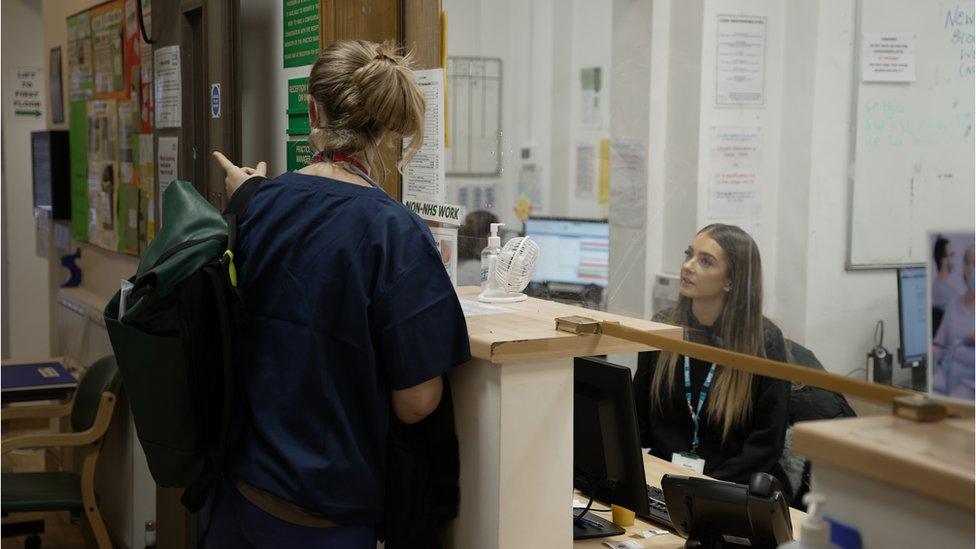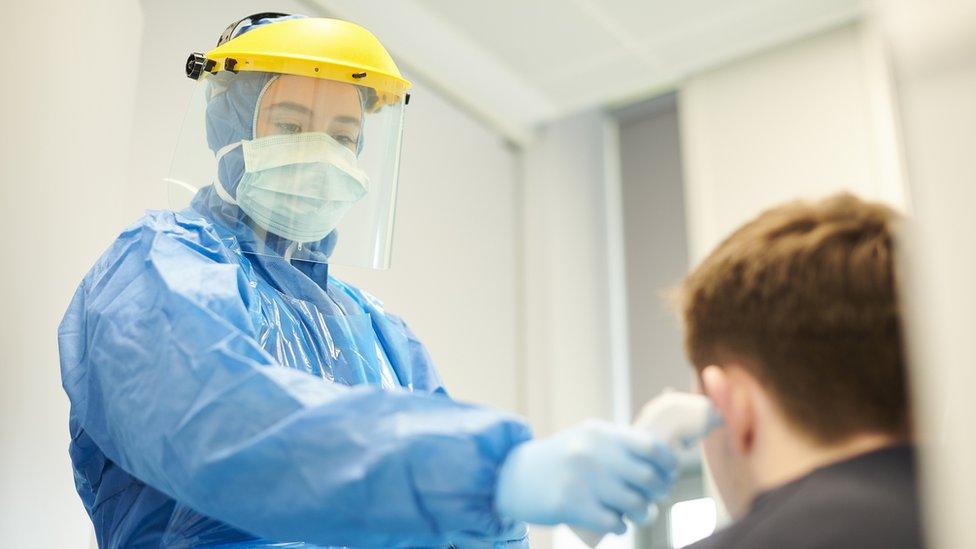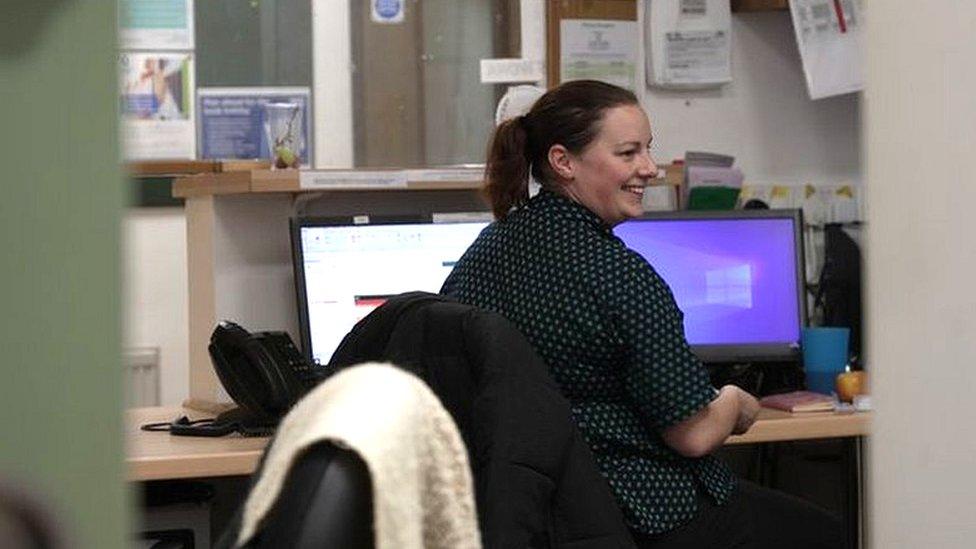GP receptionists face increasing abuse, doctors say
- Published

GP receptionists say they are not a "barrier" to care and instead are now trained to triage patients
GP receptionists suffer "increasing abuse" from patients because of the pandemic, doctors say.
Many are now considering quitting, according to a York GP who raised the issue at a York Council meeting.
Dr Emma Broughton said she hears more shouting "than ever before" from reception, and has had to leave her consulting room to intervene.
She said people's increased anger is due to "overwhelming strain" from the pandemic.
The report into York's GP services, collated by patient pressure group Healthwatch York over seven months, and discussed at a York Council's health and wellbeing meeting last week, shows how patients struggle to make appointments or get through to their surgery.
Dr Broughton, of Priory Medical Group which has nine centres across York, said the pandemic has caused huge problems with "people's mental health and people's agitation".
"Receptionists are facing more aggression than ever before," she said.
Plea for public to think before asking to see GPs
'We're not battle-axes', say GP receptionists
Receptionist Andrea Powell, from a surgery in Acomb, said many people become abusive when they feel ill and cannot get appointments.
"The perception at the minute is receptionists are a barrier," she said.
"We take a lot of the brunt of patient frustration, we fully understand their frustration but we are doing everything we can to help."
Dr Broughton said GPs are dealing with more patients despite increased staff sickness and fewer GPs, plus a "huge backlog" of issues people put off asking the GP about because of the pandemic.
She said it is a "misperception that GPs are not working" and waiting rooms are quieter because of covid restrictions, with doctors in consultation rooms are less visible than elsewhere in the NHS.
"At hospitals you can see ambulances backing up and you can tell they're under pressure," she said.
Online booking, receptionist triage and more practitioner roles mean more patients are being seen, and appointments can be given based on clinical need.

Follow BBC Yorkshire on Facebook, external, Twitter, external and Instagram, external. Send your story ideas to yorkslincs.news@bbc.co.uk, external.
Related topics
- Published23 November 2021

- Published17 November 2021
